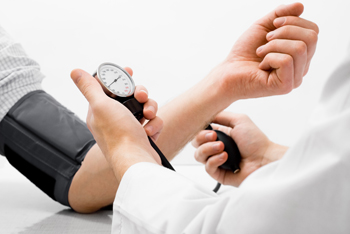 Feb 5: Twenty-somethings with even mildly elevated blood pressure may face an increased risk of clogged heart arteries by middle age, a long-term U.S. study finds.
Feb 5: Twenty-somethings with even mildly elevated blood pressure may face an increased risk of clogged heart arteries by middle age, a long-term U.S. study finds.
The study, which tracked nearly 4,700 people, found that even "pre-hypertension" in young adulthood was linked to a higher risk of calcium buildup in the heart arteries 25 years later.
Experts said the findings send a message to young adults: Know your blood pressure numbers and, if needed, change your lifestyle to get them in the normal range.
"What you do as a young adult matters," said lead researcher Norrina Allen, an assistant professor of preventive medicine at Northwestern University Feinberg School of Medicine, in Chicago. "We shouldn't wait until middle-age to address blood pressure."
That same message goes for doctors, too, Allen added. "Many doctors might not think a small elevation in blood pressure (in a young adult) even warrants a discussion," she said.
The new study appears in the Feb. 5 issue of the Journal of the American Medical Association.
The good news, Allen noted, is that lifestyle changes can "absolutely" be enough for a healthy young person with moderately elevated blood pressure.
An expert not involved in the study agreed. "Lifestyle changes do work. Even within the span of a few months, blood pressure can dramatically improve," said Dr. George Bakris, a professor of medicine at University of Chicago Medicine who wrote an editorial published with the study.
Diet changes, such as cutting out salty processed foods and getting more fruits and vegetables, are key. So is moderate exercise, like walking, study author Allen said. And if you're overweight, even cutting a few pounds can help lower blood pressure.
Bakris pointed to some steps that are less well known: Watch your drinking, since alcohol can raise blood pressure; and get enough sleep.
"It's important to get at least six hours of uninterrupted sleep each night," Bakris said. "Ideally, you'd get six to eight hours."
In the United States, about one-third of adults have high blood pressure, which is defined as a systolic pressure (the top number) of 140 or higher, or a diastolic pressure (the bottom number) of 90 or higher, according to the U.S. Centers for Disease Control and Prevention. "Normal" blood pressure is anything below 120/80, while numbers that fall in between "normal" and "high" are considered "pre-hypertension."
The new findings are based on 4,681 people from four U.S. cities who were between the ages of 18 and 30 when they entered the study in the mid-1980s. Over the next couple of decades, they had their blood pressure taken periodically. At year 25, they underwent CT scans to look for calcium buildup in the arteries -- which is considered an early sign of heart disease.
Overall, Allen's team found that study participants had five general "trajectories" in blood pressure over time.
Five percent had slightly elevated blood pressure at their first measurement, which then kept increasing over the years. That group had the worst-looking arteries 25 years later: One-quarter had calcium "scores" above 100, which is linked to a higher-than-normal risk of suffering a heart attack in the next several years.
In contrast, among people who had normal blood pressure throughout the study, only 4 percent had calcium scores that high.
But it wasn't only the young people with ever-increasing blood pressure who showed artery trouble later on.
Another 19 percent had blood pressure that was slightly elevated in young adulthood, but stable thereafter -- hovering in the pre-hypertension range over the years. In that group, 17 percent ended up with a calcium score above 100.
Of course, young people with elevated blood pressure might have other health issues, too. But even when Allen's team took into account for other factors -- like smoking, weight and current blood pressure -- a person's lifetime blood-pressure pattern was still important.
According to Bakris, it all suggests that elevated blood pressure, left unchecked, can start taking a toll on the arteries early in life. "If you wait until your 40s or 50s to address it, the damage to the arteries may already be done," he said.
He suggested that most healthy young people have their blood pressure checked every couple of years. But if they have a strong family history of high blood pressure -- such as two parents who developed the condition at a fairly young age -- more-frequent blood pressure checks would be in order, Bakris said.




Comments
Add new comment